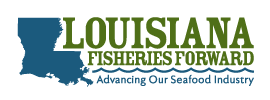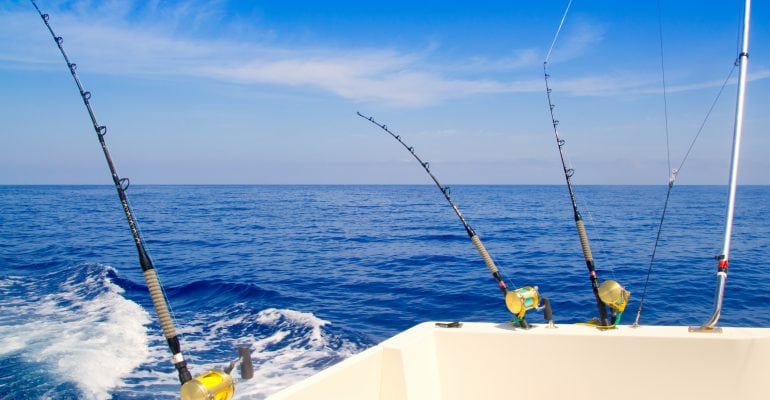The Gulf of Mexico Fishery Management Council met last week in Destin, Florida. The following is a brief overview of what was accomplished:
Data Collection Advisory Panel
The Council populated its Data Collection Advisory Panel (AP) and created its charge. The charge is “To review and evaluate data collection and monitoring management programs. The AP should make recommendations to the Council for data collection programs in relation to their implementation, efficiency, end user costs, and feasibility.” The Council selected the following people to serve on the panel for a 3-year term:
| Gary Bryant | James Dylan Hubbard |
| Ronald Chicola | Ralph Humphrey |
| Michael Colby | Charlotte Marin |
| Jason DeLaCruz | Eric Schmidt |
| Sepp Haukebo | Nicole Smith |
| Scott Hickman |
Coral Advisory Panel
The Council populated its Coral Advisory Panel. The following people will serve on the panel for a 3-year term:
| Jon Paul Brooker | Shelly Krueger |
| Scott Hickman | Richard Ruzika |
| Morgan Kilgour | Portia Sapp |
Carryover of Unharvested Quota
The Council heard a summary of comments on a draft amendment that considers carrying over uncaught quota from one year to the next when harvest has not reached the annual catch limit. In April 2019, the Council requested that the Science Center complete both carryover and payback provisions for greater amberjack, red snapper, and king mackerel. Paybacks would be applied to the smallest managed component of a fishery which exceeded its portion of the stock annual catch limit. However, the Council did not want to apply paybacks for otherwise healthy stocks if they were not necessary. Further, NOAA Fisheries is working on an interim analysis process that would provide timely evaluation of stock health to generate updated catch advice. This could allow for regular adjustments to ACLs while simultaneously monitoring the wellbeing of the stock. Based on these discussions, the Council decided to postpone work on the Carryover Amendment until the interim analysis procedures are developed.
Two-Day Possession Limit on Federal For-Hire Trips
Anglers on federal for-hire trips may retain two daily bag limits of reef fish and king and Spanish mackerel if the trip lasts longer than 24 hours, has two licensed captains onboard, and all anglers are in possession of a receipt showing the duration of the trip. Currently, anglers on such trips may not retain their second daily bag limit until 24 hours have passed. However, this is not how many operators have fished historically. The Council initiated a document that would consider allowing the two-day bag limit to be harvested at any time during a multi-day federal for-hire trip.
Modifications to Commercial Individual Fishing Quota Programs
The Council reviewed a draft of Amendment 36B, which considers modifying the commercial individual fishing quota programs with the intent to assist small participants and new entrants to the IFQ programs, reduce discards, and increase access to shares to actively fishing, eligible commercial fishermen.
The first action considers whether to require a commercial fishing permit to hold IFQ shares. The Council removed an alternative that would allow a shareholder to hold a very small amount of shares without a permit and decided instead to consider the commercial permit requirement for all shareholders.
Action 2 would distribute the shares that were reclaimed from IFQ accounts that were never activated. The alternatives would either distribute those shares among shareholders or use those shares to establish a quota bank. The Council added an alternative that would distribute the shares to small shareholders whose shares represent 500 lbs allocation or less of each share category.
Commercial fishermen are required to estimate the weight of fish they have onboard prior to landing through an advance landing notification. Then, the dealer reports the actual weight of fish when fish are offloaded and sold, thereby providing accountability in the IFQ program by ensuring allocation is accounted for after each fishing trip. Action 4 considers requiring accuracy in the estimated weights provided in advance landing notifications. The intent is to assist law enforcement efforts in ensuring that all landings of IFQ stocks are accounted for. The Council indicated that it would like to avoid punishing honest operators and focus on egregious cases of misestimating. Thus, the Council modified the action so that accuracy on estimated weights would apply only to underestimates provided in advance landing notifications. The Council also changed the alternatives to reflect a more generous range of options by requiring estimated weights to be within 25%, 50%, 75%, or 100% of the actual landed weight per share category, and added an option that would increase the landing threshold at which this requirement would be applicable to 750 lbs.
Greater Amberjack Commercial Trip Limit
The Council took final action on a Framework amendment that considers reducing the commercial trip limit for greater amberjack. The Council decided to reduce the trip limit to 1,000 pounds gutted weight and when 75% of the annual catch target it met, the trip limit will step down to 250 pounds. Public comment indicated that some fishermen want to maintain a higher trip limit to allow for directed greater amberjack trips while some fishermen supported lower trip limits because they consider greater amberjack a bycatch species and prefer that the season remain open as long as possible. The Council will submit this proposed regulation change to the Secretary of Commerce for approval and implementation.
Recreational Greater Amberjack
Recent recreational greater amberjack management changes modified the fishing year so that the quota renews on August 1 instead of January 1. The fishing season opens in the fall from August – October with the new quota, and then any remaining quota is used to open a May season in the following year. These changes went into effect in 2018, and the entire quota was harvested in the 2018 August – October season, with no May 2019 season. The Council directed staff to develop a document that would prioritize both May and fall harvest seasons. The document should include options that consider changing the fishing year, fractional bag limits, and modifications to the current season structure.
Recreational For-Hire Red Snapper Annual Catch Target Buffer
The Council discussed a Framework Action that considers reducing the buffer between the federal for-hire component annual catch limit and annual catch target. A previous framework action modified the buffer by reducing it from 20% to 9% for 2019 only. Reducing the buffer on a more permanent basis is expected to allow a greater harvest while continuing to constrain landings to the federal for-hire component annual catch limit. The Council selected a preferred alternative that would set the buffer between the annual catch limit and annual catch target at 9%. The Council will solicit comments on this Framework Action before taking final action at its August meeting.
Gray (Mangrove) Snapper
The Council continued work on an amendment that considers the criteria used to determine the overfishing and overfished status of gray snapper, and the annual catch limits for the stock. The Council selected preferred alternatives that will set the Maximum Sustainable Yield proxy at the yield when fishing at 26% of spawning potential ratio. For future assessments, the Maximum Sustainable Yield proxy will be recommended by the Council’s Scientific and Statistical Committee, and subject to approval by the Council. The Council also selected a preferred alternative that would set the maximum fishing mortality threshold consistent with the Maximum Sustainable Yield proxy. Based on the preferred alternatives the Council selected gray snapper would not be overfished or undergoing overfishing. Additionally, the Council chose a preferred alternative that would establish harvest levels for 2019 and beyond:
| Year | OFL (mp ww) | ABC (mp ww) | ACL (mp ww) |
| 2019 | 2.59 | 2.52 | 2.24 |
| 2020 | 2.58 | 2.51 | 2.24 |
| 2021+ | 2.57 | 2.51 | 2.23 |
The Council will solicit public comments and host a public hearing via webinar before taking final action on this document at its August meeting
Almaco Jack
After hearing public testimony and comments from the South Atlantic Council Liaison, the Council asked its Scientific and Statistical Committee to consider a minimum size limit for almaco jack.
Shrimp Bycatch Exempted Fishing Permit
The Council recommended that NOAA Fisheries approve an Exempted Fishing Permit Application that would allow for a new bycatch reduction device to be tested in the shrimp fishery.





